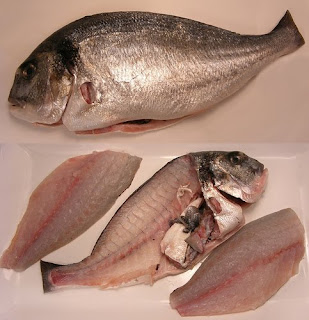Accepting the Challenges of Sustainable Seafood
I am always glad to see seafood sustainability in the public realm. I was inspired by this recent New York Times editorial.Like many issues today there is, as the author points out, a lot of confusion and bad information being bantered about.
There is unfortunately a perception that farmed is bad (sometimes true) and that wild caught is better (not always the case).
I am a fishmonger in New York and even some of the most savvy chefs are just starting to address this issue.
Much of the problem of seafood sustainability I think is the general disconnect that the American consumer has developed with food. When I try to sell some sustainable species like mackerel (a small oily and relatively abundant fish) I hear that people do not like it. The truth might be that they won't try it.
My advice:
1. Get a seafood guide for your local. Blue Ocean Institute is great for the Northeast. Monterey Bay is better if you live near the Pacific.
2.Get to know your fishmonger. Ask lots of questions.
3. Use the above sources to develop a short list of Sustainable choices.
There is unfortunately a perception that farmed is bad (sometimes true) and that wild caught is better (not always the case).
I am a fishmonger in New York and even some of the most savvy chefs are just starting to address this issue.
Much of the problem of seafood sustainability I think is the general disconnect that the American consumer has developed with food. When I try to sell some sustainable species like mackerel (a small oily and relatively abundant fish) I hear that people do not like it. The truth might be that they won't try it.
My advice:
1. Get a seafood guide for your local. Blue Ocean Institute is great for the Northeast. Monterey Bay is better if you live near the Pacific.
2.Get to know your fishmonger. Ask lots of questions.
3. Use the above sources to develop a short list of Sustainable choices.


Comments